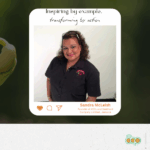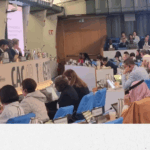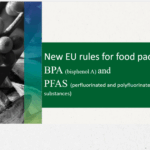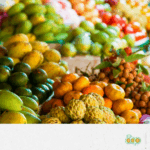- 15/07/2025
- Posted by: Sandra Borma
- Category: News
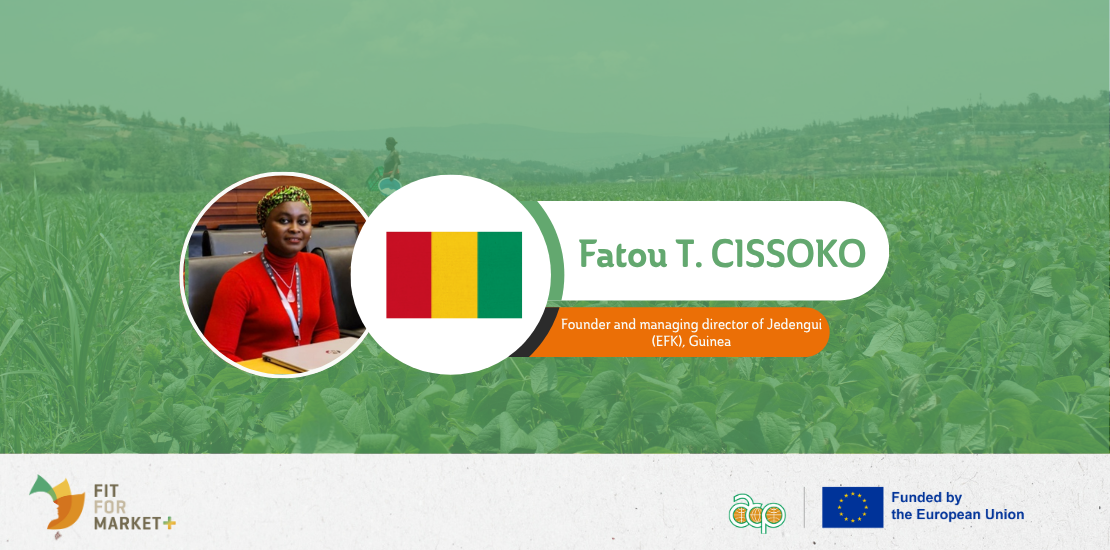
Fatou Titine Cissoko is the founder and managing director of Jedengui (EFK), a Guinean agri-food company that transforms local agricultural surplus into high-quality natural products. She is a leading figure in women’s entrepreneurship in West Africa, committed to empowering women, supporting small-scale producers and reducing post-harvest losses. Originally from Kindia, Fatou witnessed over 40% of fruit production being wasted due to a lack of markets. Hailing from a farming background, she established EFK in 2014 to reduce waste and enhance the value of local produce. The company is entirely women-run and specialises in dried fruits and natural juices under the Jedengui brand, meeting demand for healthy, additive-free products.
It is an inclusive model for small-scale producers.
EFK works with over 70 small-scale producers, most of whom are women, buying their surplus produce and providing them with a stable income. The company supports the organisation of local cooperatives and collaborates with FEPAF-BG. In 2021, it launched the ADAKI cooperative, which Fatou chairs. EFK also provides training and technical support to help producers integrate into a sustainable value chain.
Natural, competitive and certified products
The Jedengui range includes dried mango, ‘Baronne de Guinée’ pineapple, ginger and 100% natural juices with no preservatives. EFK is pursuing HACCP and FSSC 22000 certification to support its export ambitions. Currently, 70% of sales are in Guinea, through supermarkets, hotels and fuel stations, with exports to the UAE accounting for 15%, and to Senegal, Mali and Morocco for 5% each. In the medium term, the goal is to export 60% of dried fruit production.
Innovating for sustainable development
EFK combines semi-industrial dryers with traditional juice units. Fatou is also piloting solar drying in collaboration with UC Davis and Winrock International as part of the Feed the Future programme. Despite this progress, EFK still faces capacity limitations, high packaging costs and restricted access to finance. Partners such as COLEAD, UNDP, USAID, Enabel, ITC, UNIDO, UNCDF and the World Bank support EFK by providing training, equipment and strategic guidance.
EFK is a model of inclusion and women’s leadership.
EFK employs ten women, often from informal or unemployed backgrounds, offering them a decent income, technical skills, and a sense of pride in contributing to the production of quality local goods. For Fatou, creating rural jobs is key to slowing the exodus from rural areas, with the aim of reducing it by 10% in affected communities.
National recognition and active advocacy
Fatou’s work has earned her widespread acclaim. She won the Agrobusiness Prize for Social Entrepreneurship at SADEN 2020 and was named Best Female Hope and Best Rural Investment by Gnouma Magazine in 2022. In 2023, she received the “GUINE LOOLEH” award. As president of IFIM Guinée, she campaigns to better structure the mango sector and raise producers’ visibility. Through trade fairs and regional partnerships, Jedengui is emerging as a symbol of Guinea’s agri-food potential.
Concrete prospects lie ahead:
With support from I&P Acceleration, EFK is installing a 1,000-litre/day juice line and upgrading facilities, creating eight permanent jobs and indirect opportunities in line with its inclusive mission. For Fatou, “our work goes beyond products: it’s about people”.
She shared this vision during session 11 of the PAFO-COLEAD Innovations series, highlighting how local processing can reduce food waste. “Our work goes beyond products: it’s about people. We support producers, especially women, to realise their full potential.”
Read her company profile here. Join the discussion on the circular economy on the Agrinnovators forum.
This activity is supported by the Fit For Market Plus (FFM+) programme, implemented by COLEAD within the Framework of Development Cooperation between the Organisation of African, Caribbean and Pacific States (OACPS) and the European Union. This publication receives financial support from the European Union and the OACPS. The content of this publication is the sole responsibility of COLEAD and can in no way be taken to reflect the views of the European Union or the OACPS.


